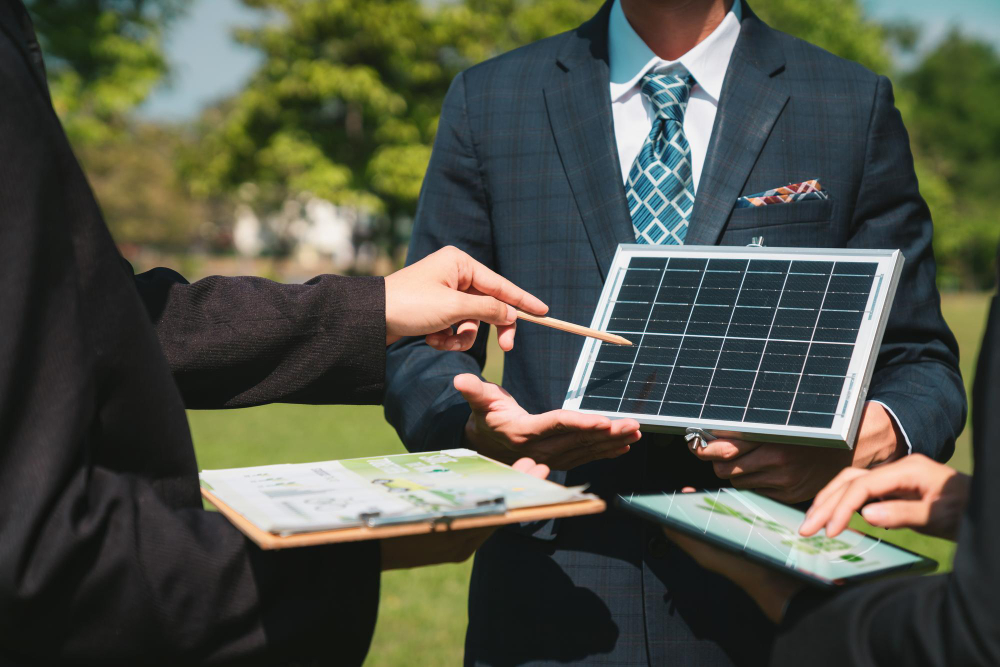
The shift toward renewable energy is accelerating across India, and solar energy panels price is one of the most searched topics among homeowners and businesses. With falling panel costs, government subsidies, and rising electricity bills, solar power is becoming the smart choice for long-term energy savings.
This blog explains the current price of solar energy panels, factors that affect costs, available subsidies, and how to choose the right system for your needs.
What Are Solar Energy Panels?
Solar energy panels—commonly called solar PV panels—use photovoltaic technology (PV) to convert sunlight into electricity. These panels are the backbone of solar panel systems, whether installed on residential rooftops, commercial properties, or large ground-mounted solar farms.
Each panel is made of solar cells (usually silicon-based) that capture photons from sunlight. This process generates electricity that powers appliances at home or feeds back into the grid. To maximize efficiency, systems often include a solar inverter to convert DC into AC.
For a breakdown of solar pv panels price, you can compare monocrystalline, polycrystalline, and bifacial modules available in India.
Solar Energy Panels Price Per Watt in India
As of 2025, the average solar energy panels price per watt in India ranges between:
- Polycrystalline Panels: ₹22 – ₹28 per watt
- Monocrystalline Panels (Mono PERC): ₹28 – ₹35 per watt
- Bifacial Panels: ₹35 – ₹45 per watt
👉 These rates are only for panels. Complete solar panel installation involves additional costs for inverters, mounting, wiring, and labor.
Solar Energy Panels Price by System Size
Estimated pricing for solar systems (inclusive of panels, inverters, and mounting):
- 1 kW system: ₹70,000 – ₹85,000 (runs lights, fans, small appliances)
- 3 kW system: ₹1,80,000 – ₹2,30,000 (suitable for small homes)
- 5 kW system: ₹3,00,000 – ₹3,80,000 (can power ACs and fridges)
- 10 kW system: ₹6,00,000 – ₹7,50,000 (large homes or small businesses)
Homes switching to solar electricity for home often choose 3–5 kW systems, balancing cost and performance.
Factors That Affect Solar Energy Panels Price
- Solar Panel Types – Monocrystalline panels are more efficient and costly, while polycrystalline are more affordable. (Learn more about solar panel types).
- System Size – Larger systems cost more upfront but reduce cost per unit generated.
- Installation Complexity – Rooftop angle, structure, and shading can increase installation costs.
- Technology Used – Features like PERC cells or bifacial modules raise efficiency (and cost).
- Location – Prices vary across states due to labor and logistics.
- Government Subsidy – Residential systems are eligible for 30–40% subsidy under PM Surya Ghar Yojana.
Long-Term Value of Solar Panels
While solar energy panels price is an upfront investment, the payback period is only 4–6 years. Over 25 years, households can save ₹15–25 lakhs on electricity bills.
Advanced inspection technologies like drone thermal imaging are now being used to monitor panel performance and detect defects early. Similarly, drone 3d mapping helps in site surveys and accurate rooftop measurements before installation.
Installation and Maintenance
A complete solar panel installation process involves:
- Site Survey – Assess roof condition and shading.
- Design & Planning – Select the right system size.
- Mounting & Wiring – Install panels and connect wiring.
- Inverter Setup – Convert DC to usable AC power.
- Net Metering – Track power exported and consumed.
Maintenance is minimal—cleaning panels every 15–30 days and checking wiring once in a while.
- Switching to clean power? Learn about solar power to house benefits.
FAQs
Q1: What is the price of solar energy panels for homes in India?
A: Prices range from ₹70,000 to ₹85,000 for a 1 kW system.
Q2: Which solar energy panel is best for efficiency?
A: Monocrystalline PERC panels offer the best efficiency but are costlier.
Q3: Can I get subsidies for solar installation?
A: Yes, under PM Surya Ghar Yojana, residential users get up to 40% subsidy.
Q4: How long do solar energy panels last?
A: Most panels come with a 25–30 year warranty.
Q5: Can solar panels run a full household?
A: Yes, with the right system size (5–10 kW), they can run appliances including ACs and fridges.
Q6: Do solar energy panels work in cloudy weather?
A: Yes, but with reduced output. Hybrid systems with batteries work best in such cases.
Q7: How often should solar panels be cleaned?
A: Every 15–30 days to maintain efficiency.
Q8: Is solar energy safe for my home?
A: Absolutely, panels are built with safety standards and inverters regulate electricity flow.
Q9: Where can I buy solar panels in India?
A: Panels are available online (deltapower.in) or through authorized dealers.
Q10: Does solar increase property value?
A: Yes, solar-equipped homes are valued higher due to reduced energy costs.
(*Note: All costs mentioned above are estimates and can change with time.)
Final Thoughts
The solar energy panels price in India has fallen steadily, making it a smart investment for homes and businesses. With government subsidies, long-term savings, and minimal maintenance, solar is no longer just a green choice—it’s an economically wise one.
Whether you’re planning a small rooftop setup or a large installation, now is the best time to go solar.
